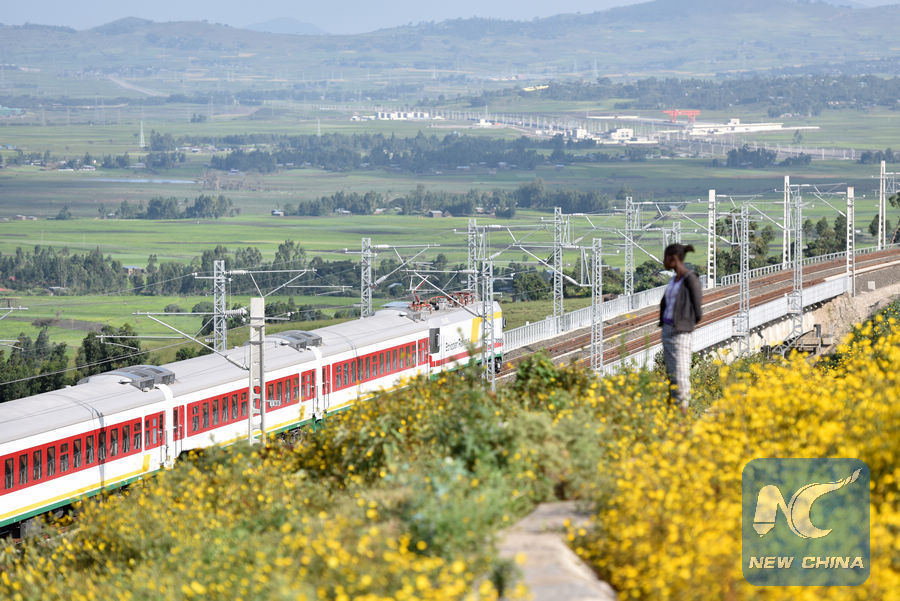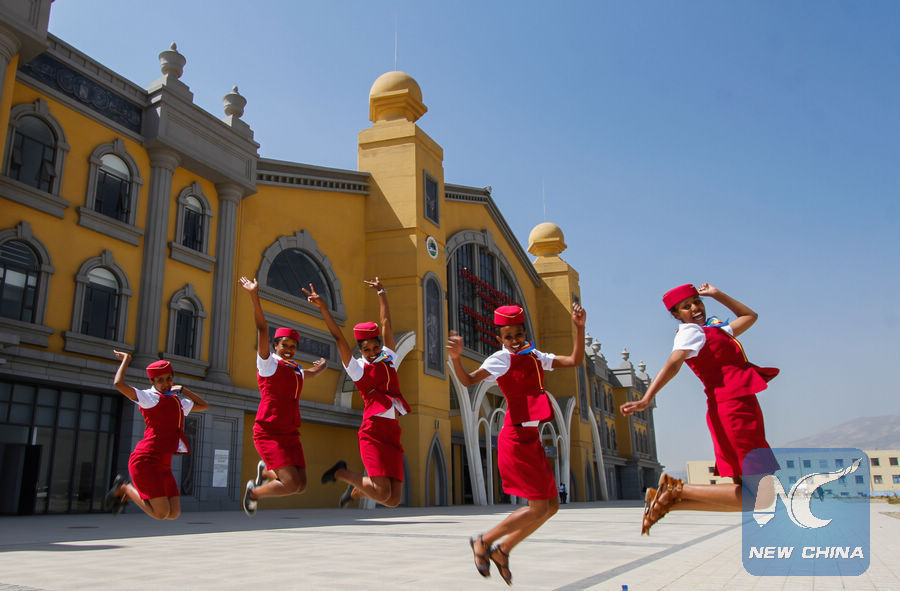
A train runs on the Ethiopia-Djibouti railway during an operational test near Addis Ababa, Ethiopia, on Oct. 3, 2016. (Xinhua/Sun Ruibo)
ADDIS ABABA, July 24 (Xinhua) -- The Chinese-built Ethiopia-Djibouti standard gauge railway on Tuesday received acclaim for driving Ethiopia's import-export endeavors as it leveraged the growing transportation needs of the country.
The railway, which connects landlocked Ethiopia's capital Addis Ababa with ports in Djibouti, mainly garnered the praise for its contribution in the transportation of the much-needed imported agricultural inputs to the East African country.
According to figures from the Ethiopia-Djibouti Railway Company, the Ethiopia-Djibouti railway, over the past few months period, had transported about 70,000 tons of fertilizer from the Djibouti port to Ethiopia as the main harvesting season approaches.
"We do this under the agreement with the Ethiopian Agriculture Works Corporation, and as fertilizer is considered to be an important commodity which has to be transported very quickly," Ethiopia's state-run news agency quoted Aminu Juhar, EDR Planning Manager, as saying on Tuesday.
The 756-km railway, which officially commenced its commercial operations for both passenger and freight services between the two countries in January last year, has been instrumental in leveraging transportation needs of Ethiopia from its neighboring Red Sea nation of Djibouti.
Juhar, who noted the railway's "significant role in delivering fertilizers needed by farmers on time," stressed that the much-needed fertilizer have been transported in 26 rounds with the capacity of transporting 2,590 tons of fertilizer in a single trip.
As Ethiopian farmers' gear up their farming efforts during the imminent harvest season, the Ethiopia-Djibouti railway has over the past few months transported about 70,000 tons of fertilizers have been transported from Djibouti, it was noted.
The Ethiopia-Djibouti railway, which is considered as the first electrified transnational railway in Africa, presently provides different kinds of freight services including the transportation of perishable goods, vehicles, cereals and fertilizers at Indode, Mojo, Adama, and Nagad stations.

Ethiopian attendants jump at the Lebu station in Addis Ababa, capital of Ethiopia, Jan. 1, 2018. (Xinhua/Michael Tewelde)
According to the Ethiopia-Djibouti Railway Share Company, the East African country could have been forced to deploy over 75 freight trucks in order to transport the same capacity of fertilizer that was transported in a single train.
Juhar, who noted that the railway currently transports commodities from the Djibouti port to the capital Addis Ababa within 11 hours which would have necessitates 3 days for trucks, stressed that "train transportation is effective both in terms of time and cost."
Juhar also stressed that applying the railway platform "immensely benefits Ethiopia by reducing its expenditure for high-cost commodities like imported petroleum and related items."
"It gives more economic advantage for the nation and the agriculture sector by delivering the fertilizers right on time," he added.
Juhar further stressed that the electrified railway "will have a paramount contribution to the export-oriented expansion of industrial parks."
The railway, contracted by two Chinese companies China Railway Group and China Civil Engineering Construction Corporation, is currently managed by a consortium of Chinese companies for a period of six years.

